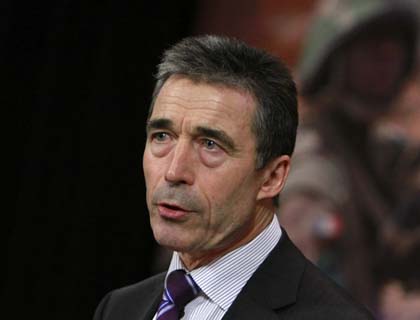KABUL - NATO has reached agreement with Central Asian nations to bring military equipment out of Afghanistan, completely bypassing Pakistan.
NATO has concluded agreements with Central Asian nations allowing it to evacuate vehicles and other military equipment from Afghanistan and completely bypass Pakistan, which once provided the main supply route for coalition forces.
Secretary-General Anders Fogh Rasmussen said on Monday Uzbekistan, Kyrgyzstan and Kazakhstan had agreed to allow the reverse transport of alliance equipment.
Since NATO already has an agreement with Russia, the deal will allow it to ship back to Europe tens of thousands of vehicles, containers and other items through the overland route when the evacuation picks up pace later this year.
Pakistan shut down the southern supply routes six months ago after US air strikes accidentally killed 24 Pakistani soldiers at two border posts, forcing NATO to switch almost completely to the so-called Northern Distribution Network.
After months of stalemate, Pakistani leaders last month signaled that negotiations on the supply routes were progressing, just in time to secure an invitation to the weekend NATO summit in Chicago. But since then the two sides have made little progress in the talks, officials said.
The announcement on Monday appears to indicate that Washington and the allies are now preparing for the possibility that the supply link through Pakistan, said to be about six times cheaper than its northern alternative, may not be reopened at all.
It is also likely to put pressure on Pakistan to ease its negotiating stance, which has been stuck in part on how much money the US and NATO should pay to transport the trucks through Pakistani territory.
NATO plans to hand over lead responsibility for the war against the Taliban to the Afghan army and police by the middle of next year, and withdraw its troops by the end of 2014. The alliance already has started drawing down its forces, which reached a peak of about 140,000 last year.
"These agreements will give us a range of new options and the robust and flexible transport network we need," Fogh Rasmussen told reporters. (Agencies)

